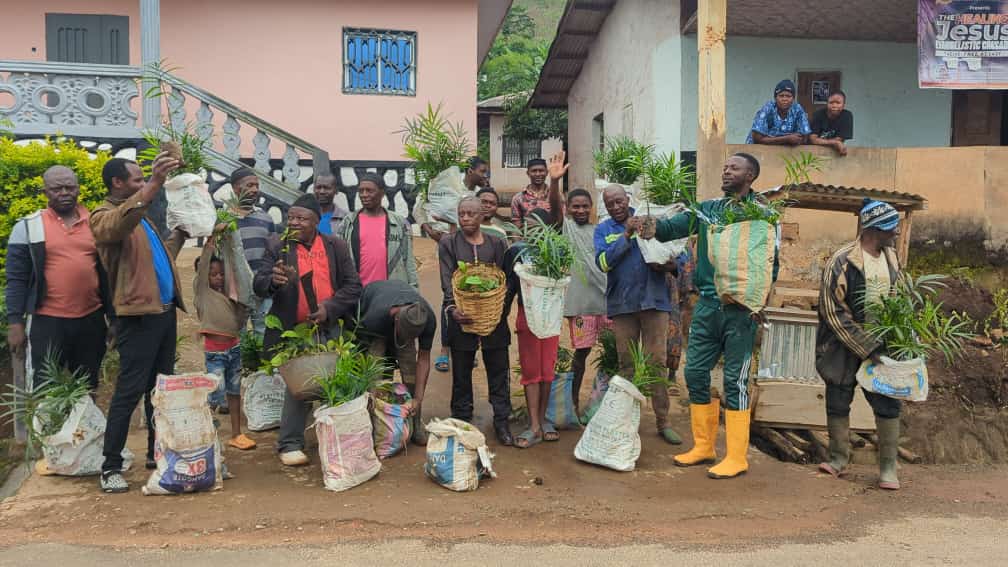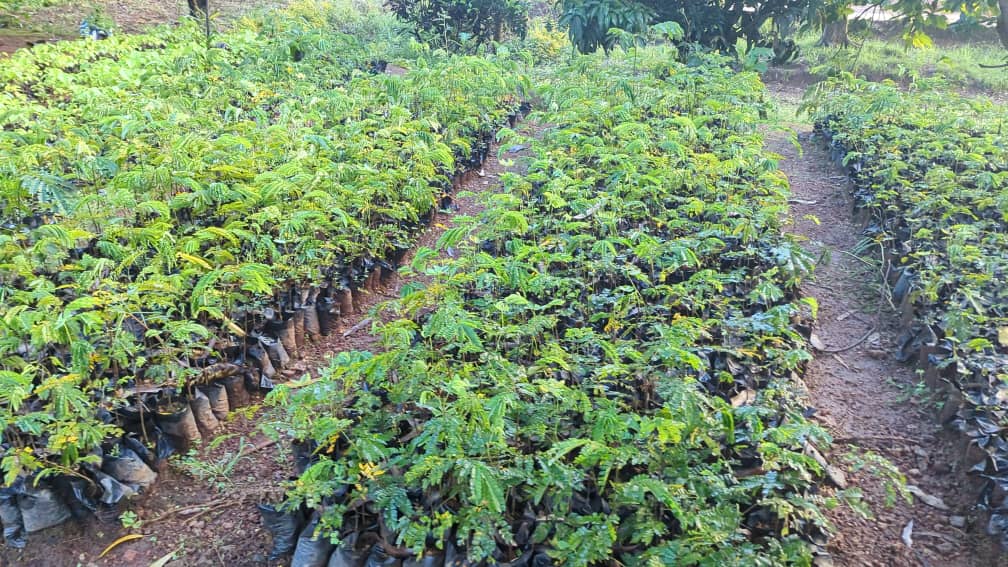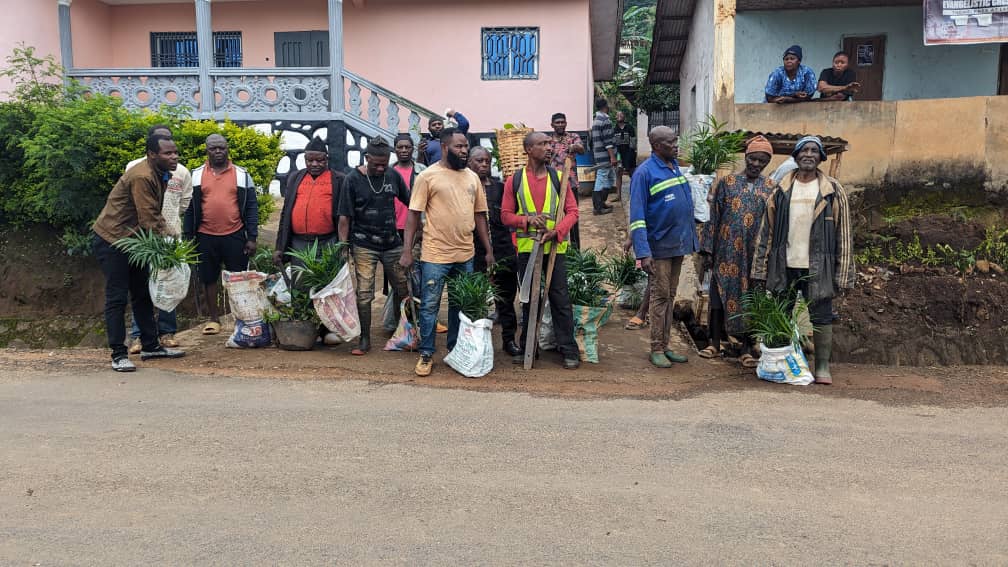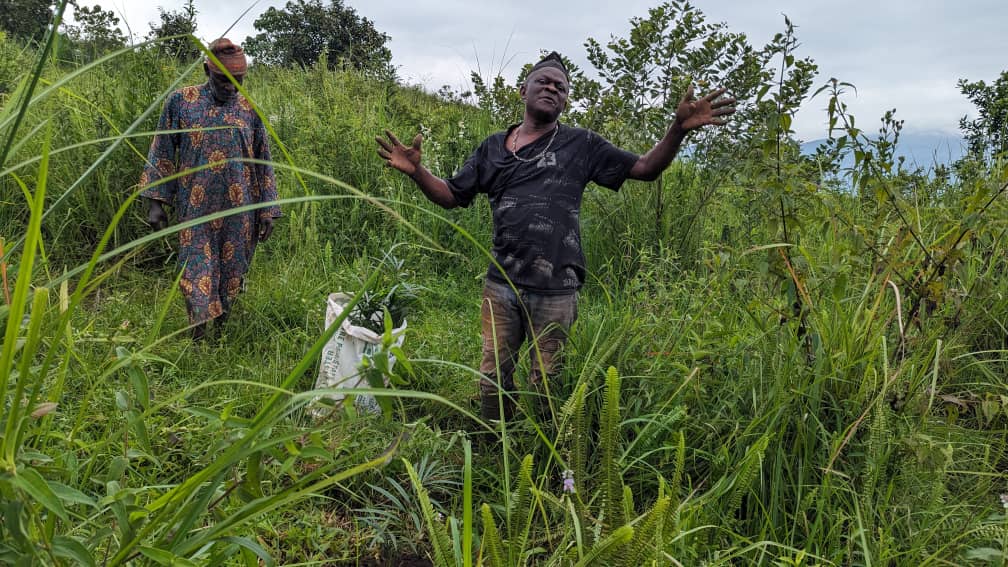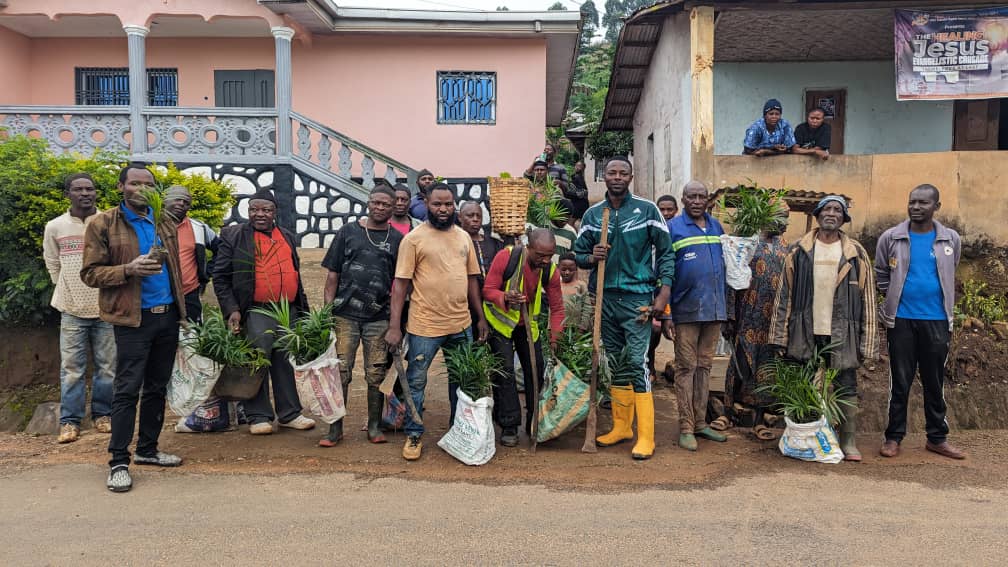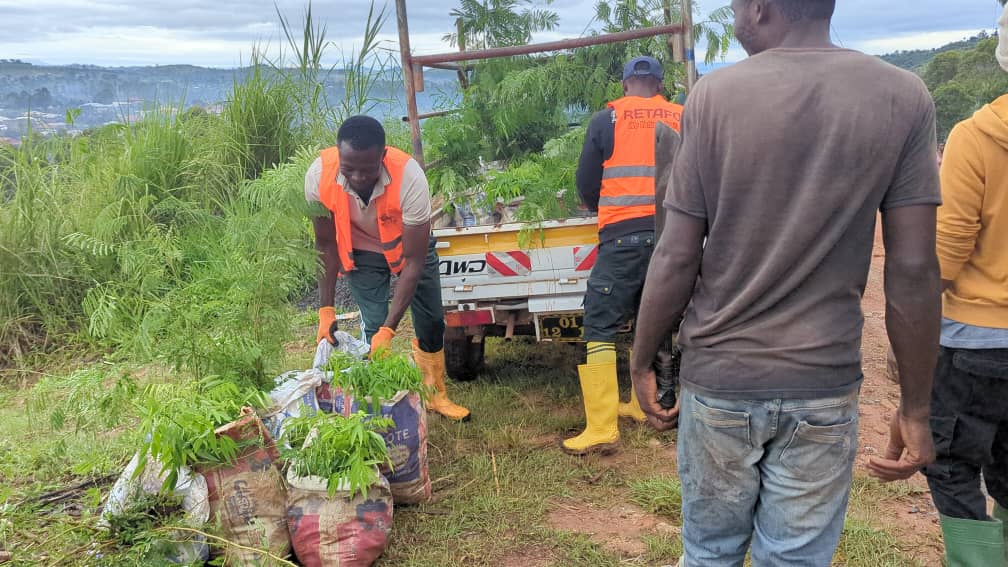
The Nkwen Community Forest Project
The Nkwen Community Forest Project is an ambitious initiative dedicated to creating a thriving community forest in the Nkwen Community, located in the Bamenda III subdivision of the North West Region of Cameroon. This project aims to plant 400,000 trees across 350+ hectares of ancestral land in Ateila, a site of immense cultural heritage and ecological significance.
This ancestral land is not just a geographical space—it holds deep cultural importance for the Nkwen Fondom, as it is home to a 500-year-old ancestral shrine. Located within Bamenda city, the reserve is surrounded by eight neighboring quarters, housing over 20,000 residents. The area also contains five vital water catchments, providing clean water to the Nkwen community and beyond.
With increasing urbanization and population growth, this land faces threats from encroachment, construction, and agricultural expansion. The Nkwen Community Forest Project seeks to preserve and restore this vital ecosystem by planting and maintaining indigenous tree species.
Types of Trees to Be Planted
The project will focus on trees that serve multiple purposes, including:
✅ Cultural Significance – Trees with traditional value for the Nkwen people.
✅ Medicinal Uses – Plants known for their healing properties.
✅ Ecological Roles – Water-friendly trees and timber species to support the local ecosystem.
✅ Fruit-bearing Trees – Providing food for both humans and wildlife.
✅ Pollinator-attracting Plants – Enhancing biodiversity and agricultural productivity.
Benefits to the Community
The Nkwen Community Forest will provide several long-term benefits, such as:
🌱 Ecological Restoration – Improving biodiversity and protecting natural habitats.
💧 Water Resource Management – Safeguarding the essential water catchments that serve the community.
🥭 Food Security – Increasing access to fruits and medicinal plants for better nutrition and healthcare.
💰 Economic Opportunities – Promoting ecotourism, research, and sustainable forest management as income-generating activities.
This project is a commitment to environmental conservation, cultural preservation, and sustainable development for future generations.

